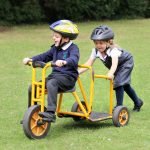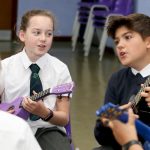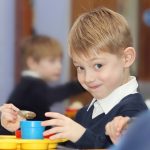Class 5 Newsletter Spring Term 2021
A big THANK YOU to all of you for your generous gifts and messages for Christmas and into the new term – we have been blown away by your generosity and support throughout these most unusual times.
From all the team in Class 5.
Spring Newsletter, Year 5 Badger Class
Welcome back to our virtual class! The holidays seem a long time ago now but we hope you enjoyed the break and are looking forward to our learning this term. The curriculum outlined below remains but, as we start the year in such a different way to what we had all expected, we may need to make modifications to some of the planned content to fit with remote learning.
Remote Learning
Well done to everyone for adapting so well to learning on Teams; we’ve been delighted to see you all taking part and we are beginning to get over some of the early teething problems. Here are just a few reminders of how we are working in Class 5:
- We will continue to set work for the children via assignments and any helpful documents to support their learning will also be added within the assignment. Please can you ensure your child’s work is submitted/handed in using the assignment tool.
- We will try to ensure assignments are made available to you the night before/morning before the lesson. This way, you can either print the document in advance so your child has it to hand (although this is not necessary), or you can open/download it onto your child’s device so they are able to view it on their screen during the lesson (this would be very helpful).
- As per the recent ParentMail, please ensure you check for updateson your Teams account (the app version works better than Teams on the web browser).
- Some documents we send do not always open within Teams (this is something we cannot control). If this is the case, you need to downloadthe document (e.g. PowerPoint) to your device and you will then be able to view it.
- ESafety– whilst the children are not in school, they have significantly more time available to them to spend online. This can present safeguarding risks. It is therefore very important that parents and carers set age-appropriate parental controls on digital devices and use internet filters to block malicious websites (these are free, but often need to be turned on). There are resources to support parents in keeping their child safe online. These are listed within the safeguarding ParentMail, dated 7.1.21.
Please remember, if you have technical difficulties accessing lessons, it is unlikely that we will be able to support you to resolve these difficulties whilst we are teaching the lesson; if you are joining the meeting and waiting in the lobby, we will let you in but if you are experiencing other problems, such as with connectivity or limitations with your particular device, please contact the school to try to tackle these. To help the smooth running of lessons, please support your child to:
- Ensure devices that they will be using are either plugged in or have adequate charge for the lessons
- Have supporting documents open for reference
- Keep the microphone muted during the lesson unless they are invited to speak (background sound is very disruptive and we are often able to hear other voices in the room quite clearly – warning to parents, work conversations sometimes form part of this audio; this is obviously best avoided!)
- Use the hand up specifically in response to questions or if they have a question of their own and then put it down again
- Keep their focus on their learning; camera on during the lesson and not messaging in the chat stream
The remote learning offer will remain two, hour-long live sessions from 9.30-10.30 and 11.00-12.00 each morning and in the afternoon, children are expected to do spelling practise, reading and another independent activity of science, topic, PE, art, PSHE or other. Please endeavour to ensure deadlines are met for handing in work via Teams assignments and we will endeavour to view and return work before the next session.
English
In English this term, we will be reading a classic text as a class and discussing similarities and variations in themes, style and language choices with modern literature. In our own writing we will be developing our ability to vary sentence structures and to write at length with increasing cohesion and impact and using a wider range of punctuation effectively. We will be linking with our topic learning to develop our clarity in our explanations and will be reading and responding to the classic poem, The Convergence of the Twain. Our word focus will continue to develop the children’s understanding of etymology, identifying word roots and adding prefixes and suffixes to alter meaning. Self-assessment remains an important area for development and we will be using a range of approaches to improve the children’s ability to assess and improve their own written work.
Maths
We will start this term by looking at place value involving decimal numbers. The children will add and subtract 2 place decimal numbers. They will understand the effect of multiplying/dividing by 10, 100, 1000 and will locate 2-place decimal numbers on a number line, rounding them to the nearest tenth or whole number. The children will write decimal numbers as fractions. They will identify, name and write equivalent fractions to their simplest form and compare and order fractions. We will revisit the short multiplication and division method with 3/4-digit numbers. The children will deepen their understand of 3-D shapes, recognise, measure and draw angles. We will regularly set the children problem solving investigations to develop their real-life problem solving and reasoning skills. equivalents for halves, quarters, fifths, tenths and hundredths. The children will work out perimeter, area and volume and use co-ordinates and line graphs. We will regularly set the children problem solving investigations to develop their real life problem solving and reasoning skills.
History and Geography
We will begin the term with a history topic, focusing on the development of Early Islamic Civilisations, specifically centred on the ancient city of Baghdad. We will develop our understanding of historical timelines, using terminology correctly and relating events with those on a global scale. We will also consider historical sources and their reliability as means of informing our learning about early civilisations. After half term, our geography will entail a study of rivers and cities, supported by a planned field trip to Daws Hall to facilitate field studies and practical research.
Science
This term we will continue to learn about forces, discussing what gravity and resistance are and identifying the effects of friction and water resistance. We will then learn about Earth and Space. The children will describe the movement of the Earth, and other planets, relative to the Sun in the solar system and they will describe the movement of the Moon relative to the Earth. The children will use the idea of the Earth’s rotation to explain day and night and the apparent movement of the sun across the sky. The children will hopefully have opportunities to work scientifically, planning different types of scientific enquiries to answer questions. They will take measurements, use a range of scientific equipment, record results using scientific diagrams and labels, and report and present their findings using conclusions and scientific explanations.
Computing
The children will learn about programming; they will be introduced to flowcharts and how they are used to program and control devices. The children will be taught to build sequences of instructions, control multiple outputs and structure algorithms with decisions and inputs. The children will also be using word processing to present their work.
Art and DT
Our Art this term will link with our work on rivers and coasts as well as our English poetry study; we will learn about the work of Maggi Hambling and her wave paintings and compare this with Turner’s atmospheric paintings of the sea. We will also be looking at perspective and viewpoint in photography, attempting to apply this in our own photography. In DT, we aim to develop our sewing skills to design and produce a money container for a fictional character of our choice.
RE and PSHE
In RE, we will be learning about and comparing creation stories from the Christian and Hindu faiths as well as studying Hindu death rituals and comparing these with Christian practices, linking with the Easter story.
Our PSHE this term will focus on healthy lifestyles and relationships. This will include how we can keep ourselves healthy, both physically and mentally, learning about focus and concentration from the Paws b curriculum and building our ability to listen to and understand others. We will consider what is meant by ‘discrimination’ and about conflict resolution in our own lives and more widely.
Music
We will be exploring our responses to music this term, including the exploration of ‘space’ music, linking with our science topic. We will extend our vocabulary for describing music to express our responses verbally as well as visually.
PE
Children will be focusing on cross country and tag rugby.
Remember, daily exercise is very important to a child’s health and well-being. We have been encouraging the children to take part in some form of exercise each day, even when it’s not a scheduled PE lesson.
French
Within the scope of remote learning, we will be broadening our vocabulary to discuss food preferences and to tell the time to the nearest half hour. We will also be learning about rooms in the home and developing sentences to say where we live. We are beginning to recognize the use of agreement in French and to apply this in our own sentence making and are becoming increasingly confident to spell and pronounce French words correctly. Once back in school, our French ‘running dictations’ will help with both these skills.
Homework
During the period of lockdown and whilst children are learning at home daily, homework will be suspended. However, as ever, please encourage your child in their reading, giving them the opportunity where possible to sample a wide range of text types and support their interest in reading by discussing what they have read and by continuing to share texts together when possible.
If you have any concerns or issues you would like to discuss regarding your child, please don’t hesitate to contact the office to arrange a phone call.
Thank you again for your ongoing support – happy 2021!
Mrs Rudkin and Miss Sabin



















